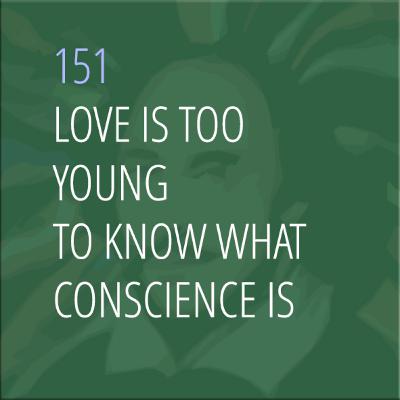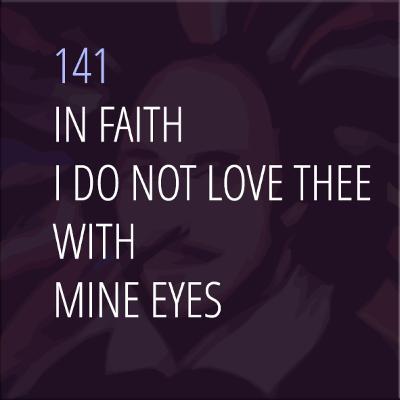Discover SONNETCAST – William Shakespeare's Sonnets Recited, Revealed, Relived
SONNETCAST – William Shakespeare's Sonnets Recited, Revealed, Relived

SONNETCAST – William Shakespeare's Sonnets Recited, Revealed, Relived
Author: Sebastian Michael
Subscribed: 22Played: 569Subscribe
Share
© Sebastian Michael
Description
Sebastian Michael, author of The Sonneteer and several other plays and books, looks at each of William Shakespeare's 154 Sonnets in the originally published sequence, giving detailed explanations and looking out for what the words themselves tell us about the great poet and playwright, about the Fair Youth and the Dark Lady, and about their complex and fascinating relationships.
Podcast transcripts, the sonnets, contact details and full info at https://www.sonnetcast.com
Podcast transcripts, the sonnets, contact details and full info at https://www.sonnetcast.com
170 Episodes
Reverse
In this, the – at least for the time-being – final episode of his podcast on William Shakespeare's Sonnets, Sebastian Michael offers a brief summary of his findings and also takes the opportunity to examine in a little more detail the view held by some contemporary editors that the sonnets may not principally be about a Fair Youth and a Dark Lady – a contention that is largely based on a supposition that many of these poems "could be addressed to a male or a female" as one recent edition puts it – to see whether it stands up to scrutiny as we formulate any conclusion.
In this special episode, Sebastian Michael is joined by architect, author, and coder Miro Roman to talk about their experimentation with applying a machine learning approach to comparing the full text of William Shakespeare's Sonnets to the full text of his plays and narrative poems to examine whether such a methodology can confirm the rare word analysis research that has previously been carried out by Macdonald P Jackson and others towards dating the sonnets.
In this special edition of Sonnetcast, Sebastian Michael takes a closer look at our original source for William Shakespeare's Sonnets, examining in detail the few textual issues it presents, the much debated origin of the manuscript, and the dedication by its publisher Thomas Thorpe to a "Mr. W. H." which has been puzzling readers of these poems for centuries.
Following an established tradition at the time, William Shakespeare furnishes his collection of 154 Sonnets with a poetic Complaint that acts as a coda to the series. Where he departs from common practice is in his deployment of an elaborate but for this no less effective distancing device that has an unnamed narrator set up the scene for us and then allows us to listen in on a conversation between a young woman and an elderly gentleman, as the woman relates how she long held out against the charms and wiles of a beautiful suitor but ultimately fell for him. Also highly unconventional and genuinely surprising is the conclusion the young woman comes to at the end of her lament...
Sonnet 154 brings to a close William Shakespeare's collection of sonnets, and it does so hand-in-hand with Sonnet 153, of which it is not a continuation, but a reiteration.Like Sonnet 153, the poem borrows directly from an epigram by 6th century Greek poet Marianus Scholasticus, and tells the story of Cupid who falls asleep in a mountain grove with his Torch of Hymen by his side. One of the goddess Diana's nymphs – in this version the most beautiful of them all – takes the torch and attempts to extinguish it in a nearby well, and in doing so inadvertently creates a hot bath for eternity.In both versions by William Shakespeare, this becomes a place where men may go to find relief for their sickness or disease, whereby neither of the two sonnets specifies just exactly what kind of disease may be so cured and leaves it somewhat open to interpretation whether Shakespeare means merely the affliction of a love sickness, or whether he is also alluding, as is widely believed, to venereal diseases, most particularly syphilis, for which hot baths were considered to be a remedial measure, if not exactly cure, at the time.
Sonnet 153 is the first of two poems that round off the collection, both retelling the same story of a tired love god Cupid who falls asleep, having put down his torch beside him. This is taken up by a nymph who dips it in a cool fountain or well with the intention of 'disarming' Cupid, but the flame of the torch is so intense that it turns the pool into a hot bath where ever since men who are sick can go to find relief.
In this special episode, Sebastian Michael summarises the second part of The Sonnets by William Shakespeare in the 1609 collection and examines the questions they present in parallel to those posed by the Fair Youth Sonnets: - Is there a Dark Lady at all?- If so, who is it?- And what, if anything, do these sonnets tell us about the poet himself, irrespective of who she is?
The last poem in the collection to address William Shakespeare's mistress directly, Sonnet 152 conclusively answers some questions, while leaving many old and several new ones open for us to ponder into posterity. It asserts again that his Dark Lady is indeed 'dark', both in appearance and in character, and here makes a stronger than ever point of how he as the poet is perjuring himself by repeatedly, even continuously, saying things about her that are simply untrue; these things, notably, not being slanderous lies but favourable compliments. The sonnet thus epitomises the form that Shakespeare with his highly unusual series either deliberately or accidentally creates: that of the anti-love poem to someone he just can't resist, even though he knows that in this he presents as deep a character flaw in himself as the ones he perceives in the person or people he professes to love or desire.
The heavily and obviously innuendo-laden Sonnet 151 returns to a struggle the poet purports to experience between what his soul – the 'nobler part' of his being – knows to be right and what his body wants and, with the by implication reluctant permission of the soul, then also gets: sex with his mistress. Although coached in euphemism and metaphor, it is in fact one of the most sexually explicit sonnets in the collection and succeeds in leaving remarkably little to the imagination, once unpacked.
The at first glance unspectacular Sonnet 150 sets off from the base laid down by the previous three sonnets and now wonders out loud just how the mistress with her numerous and by now well established flaws and a beauty that could – according to these poems – be most charitably described as unconventional, manages to make our poet love her at all, and apparently prize her above all others, even those who, when looked at with a clearer vision and a less feverish mind than his, are objectively much more beautiful and agreeable than she is. The conclusion it comes to though offers not only a fairly familiar observation that as the lover so enfeebled by your superhuman powers I surely deserve some love and pity from you, but also a surprisingly stark deconstruction, so as not to say demolition, of the lady's character in its entirety.
After establishing in the previous two sonnets that he is possessed of a 'fever' that makes him 'mad' and that distorts his vision, William Shakespeare uses Sonnet 149 to further describe the effect this love for his mistress is having on him. So much is he in her thrall that no-one whom she hates he can love, no-one she admires he may disdain. Just a glance of her eyes, and he will obey. And yet, in spite of all this, she loves him not but pursues other lovers who are not so blinded by love as he.
In Sonnet 148, William Shakespeare develops the themes revisited with Sonnet 147 and further elaborates on his realisation that reason has abandoned him and he is therefore incapable of judging properly what he sees. Either that, or his eyes themselves are faulty, since they seem to distort what they are looking at. The conclusion he comes to, much in line with the previous sonnet, is that his defective vision stems from his love for his mistress, but he here adds the almost 'technical' but for this not at all inconsequential detail that his eyes couldn't possibly be expected to deliver a true picture to the brain of what they see, since their vision is blurred by tears, suggesting therefore that this love he feels for his mistress is tinged with sadness, sorrow, or pain.
In Sonnet 147, William Shakespeare brings together two themes that have agitated him before: firstly the at the time fairly commonplace notion of love – and, more to the point, desire – as a disease that weakens the mind to the point of an irrational madness and afflicts the body in a similarly stark fashion, and secondly the ways in which his mistress deviates from the ordinarily praised ideal of beauty. The sonnet therefore returns the series firmly and identifiably to the 'Dark Lady' and the effect she is having on our poet in an unequivocally physical manner, leaving behind the reflections on the soul of the previous sonnet and concerning itself once more with his lust for someone he knows – or at the very least declares – to be neither traditionally beautiful nor morally sound.
With his solemn, near pious, Sonnet 146, William Shakespeare for the first and only time speaks directly to his soul and entreats it to look after itself; to stop expending its energy on the pursuit of outward, physical adornments which are all doomed to swift decay – effectively starving and weakening itself whilst feeding and strengthening the gluttonous body that is only meant to house it and that will soon succumb to death – and to instead let go of material riches and with the 'return' from 'selling' them, 'purchase' something infinitely more valuable: eternal life in concord with, and on the terms ordained by, God.The poem makes no mention, nor does it allude to or reference indirectly, any lover, mistress, or wife, nor love itself, or sex. This, too, makes it unique in the collection. As does its close alignment with a Christian notion of redemption through spiritual nurture at the expense of, and in preference to, physical or material gratification.
Sonnet 145 stands out in the collection for several reasons. Some factual, some conjectural, some somewhere in-between. Most obviously and beyond interpretation evident is the fact that it is the only poem composed in iambic tetrameter: it consists of 14 lines of eight syllables each, in contrast to the iambic pentameters present in all the other sonnets, giving each line of those ten or eleven syllables.Also still difficult to dispute, though already in the realm of opinion, is the observation, so as not to say contention, put forward by many scholars and commentators, that the sonnet is poetically, stylistically, literarily 'slight': it strikes a simple tone, uses some extremely familiar imagery and analogy, and is, as far as we can tell, mostly devoid of the high level compositional and rhetorical devices used in many of the other, 'regular', sonnets.Pure supposition, though intelligent and fully valid as a suggestion, is the idea that the sonnet puns on the name Hathaway and is therefore not about the Dark Lady or any other mistress, but about Shakespeare's wife, Anne; and even more adventurous is the conjecture drawn from it that therefore the poem be an early stab of Shakespeare's at as-yet-imperfect sonneteering: there is absolutely no proof that this is so, and it is just as conceivable that Shakespeare with Sonnet 145 deliberately and most intentionally not only employs a different format but also aims for a categorically different tone.
With his exceptionally explicit and startlingly revelatory Sonnet 144 William Shakespeare addresses head on the fact that his mistress and his lover are certainly friends, and that he suspects – rather strongly, we get the impression – them to be so with benefits.By identifying the man as 'right fair' and contrasting him with a woman who is 'coloured ill', he confirms what we have long thought to be the case: this is a constellation that has turned triangular, and it involves these precise three individuals, the poet, his younger male lover, the Fair Youth of the first 126 sonnets in the collection, and the Dark Lady around whom 25 of the remaining 28 sonnets revolve. This rather puts paid to the suggestion espoused by some scholars that these sonnets can or let alone should be read in isolation, that no narrative of any kind should ever be deduced from them, or that they may have been written to and about any number of lovers of any gender over the period of their composition. What Sonnet 144 shows beyond anything that might still be considered reasonable doubt, and much in line with Sonnets 33 through 42 in the Fair Youth section and Sonnets 133 and 134 in this, the Dark Lady section of the collection, is that these two groups of poems overlap, that they concern themselves with the same 'two loves' of Shakespeare's, and that our poet is profoundly disturbed by the fact that, as he sees and presents it, his mistress has seduced his young man.
With his uncharacteristically lighthearted Sonnet 143, William Shakespeare plants a picture in our minds of the poet as a crying toddler placed on the ground while his mother is running after a wayward chicken, and expresses his hope, not unreasonable in the imagined circumstances, that the mother, once she has caught the bird she's chasing, will come back to him and comfort him with her affection and her love.It's an unusual simile to say the least: not because it is complex or difficult to visualise – in fact the opposite – but because it departs from virtually all and any traditional or even just, one might argue, advisable comparison for a lover to invoke: rare is the Lothario who impresses his mistress by likening himself to her babe. And it continues to expressly accept the fact that this woman has other men whom she actively pursues. In this case, it would appear, one particular other man, who in this oddly farcical setup is assigned the role of the runaway cockerel.
With Sonnet 142 William Shakespeare picks up on the notion of 'sin' employed in the last line of the previous sonnet, and now juxtaposes this sin or sinful love of his for his mistress with her supposed 'virtue' in rejecting this love for being sinful, while simultaneously undermining any suggestion that she is in fact virtuous by asking her to just take a long, hard look at herself and her own behaviour, from which she will readily recognise that it is just as bad, if not in fact much worse.The sonnet thus continues the poet's double-edged approach to wooing his mistress, by on the one hand expressing his wish to have sex with her, while on the other hand also mildly rebuking her for having sex with other men, or, to be more precise, while refusing to be rebuked by her for wanting to have sex with her, when she herself is liberally sleeping around.
Sonnet 141 is one of several poems in the collection that show William Shakespeare to be deeply ill at ease with his lust and his love for his mistress. It may easily be argued that all of the Dark Lady Sonnets come over with a greater or lesser degree of ambiguity, with her appearance, her comportment, her smell, her touch, her sound, and most certainly her fidelity, all having either been brought into question or downright decried. Sonnet 141 does all of the above, summarising these 'thousand errors' his mistress appears to possess and laying them out as a supposedly sensual feast, the like of which he has no appetite for. Yet he still finds his foolish heart drawn to her, and for this, he concludes, he must suffer the pain that he appears to accept as his – perhaps in a somewhat perverse way – due reward.
In this special episode, Phyllis Rackin, Professor Emerita of English from the University of Pennsylvania in Philadelphia and former president of the Shakespeare Association of America talks to Sebastian Michael about the position of women in Elizabethan society, about William Shakespeare's relationship with the women in his life, and about what we can and cannot know specifically of the Dark Lady in his Sonnets.
























